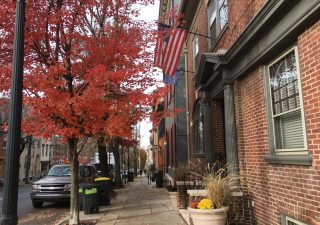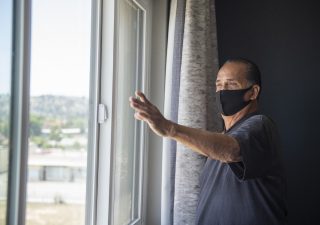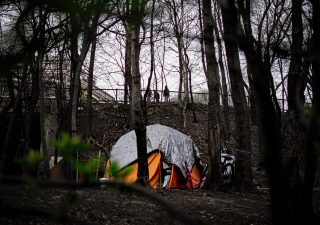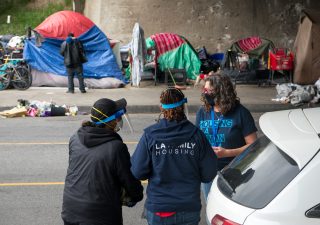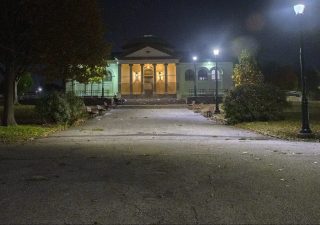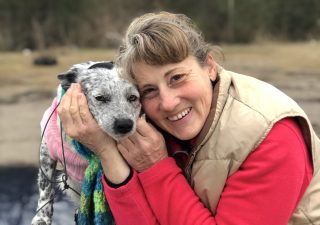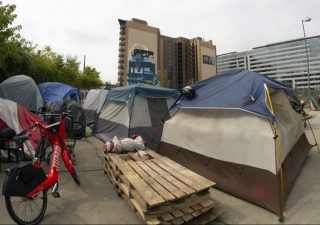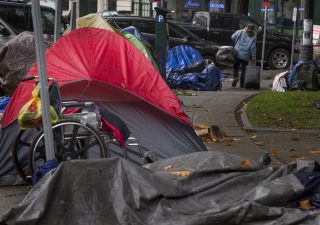With the help of careful data-keeping, a unified hotline, individualized assistance and a mindful community, Lancaster, Pennsylvania, has succeeded in getting service members off the streets.
The Howard Center for Investigative Journalism
‘Are you going to feed us to the wolves’ when temporary respite ends?
It was the third week of March and Mike Melcher was living out of his truck in Covina, California.
Life in a homeless encampment in the shadow of the University of Arkansas
William set up his tent in an encampment near the University of Arkansas. Then, he was evicted.
As the wealthy move in, homeless people are pushed out
Communities nationwide — including just blocks from the White House — are struggling with the growing number of tent cities.
Project Roomkey, the Golden State’s grand experiment
When California issued its shelter-in-place order on March 19, hotel occupancy rates throughout the state plunged into the single digits.
Philadelphia hit homelessness and drug addiction head on
Philadelphia was plagued by two epidemics in 2017: Opioid addiction and homelessness. The city addressed them as intertwined crises.
Many homeless college students are hiding in plain sight
Nearly four in 10 college students reported not having adequate housing.
Homeless women face extra health, safety worries
Many homeless women fear for their safety even when they are able to secure shelter.
Tensions rise when businesses, homeless people share the same space
In the 1990s Washington created Business Improvement Districts to “promote economic growth and employment.”
What is an encampment? Don’t ask Massachusetts
The lack of a clear encampment definition, when and how a cleanout will be done and what services are available to displaced occupants creates legal risk for authorities and further traumatizes displaced homeless individuals.

